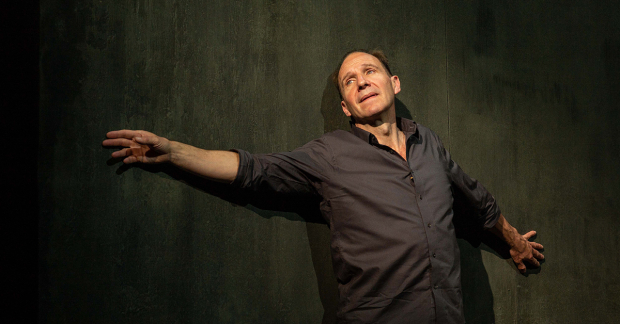Review: Four Quartets starring Ralph Fiennes (Theatre Royal Bath and tour)
Fiennes brings TS Elliot’s work to life on stage

© Matt Humphrey
Mid last year producer David Pugh tweeted out that one good way of ensuring regional theatres survived the pandemic was for star actors to commit to touring the regions. It appears that Ralph Fiennes heeded the memo, it's been a long while since an actor of his ilk has taken to the road, opening his one-man recital of TS Elliot's Four Quartets in Bath before touring the country. It is undeniably a good thing for the regions which have taken a battering and one worth getting to, especially if you can obtain a seat up close.
What makes the evening worthwhile is being able to see his virtuosity up close. Every atom in his DNA seems finely calibrated towards delivering consistently excellent performance. The eyes, slightly watery as though fountains of tears could be expelled at any moment, a glint of roguish charm or danger; his body, physically expressive and limber (you understand why he made a film about Nureyev); that voice, every vowel and consonant hitting right to the back of the upper circle. Any one-person work performed on a big stage instead of a studio space is an exercise in technical accomplishment. Fiennes, who also directs himself, trusts in his tools and the text to do the work for him. His movement is precise and considered, he is prepared to use stillness to hone the focus. There is a transfixing quality to the night, and it is coming from his centre. In this contemporary age, the cult of the great stage actor has mostly been eradicated, watching Fiennes on stage feels akin to what it must have been like to watch Olivier or Maggie Smith in their prime.
Which is just as well as I'm not sure I can count Four Quartets as successful drama in its own right. Elliot's – whose own plays, Murder At The Cathedral and The Cocktail Party have mostly disappeared from our stages – 1943 quartet of long poems, four meditations on man's relationship to time, the universe and the divine, are many things, but works of theatre they are not. Astonishing from a literary point of view, blending both Western Catholicism and Eastern mysticism, with a sense of great anger and despair of the war tearing the World apart in Little Gidding, they lack a sense of conflict, the key to all theatre. Fiennes works hard to try to find this within and succeeds to a certain extent, but as the evening wears on, there was a sense of the words and rhythms rolling over its audience, I noticed heads drooping onto chests rather than leaning forward in anticipation. Even at a shade under 80 minutes, it begins to feel a slog.
Hildegard Bechtler's set of wooden table, chair, old radio mic, and three towering blocks at the back of the stage, rotated between each poem to show perhaps the continuous spinning of time, allows Fiennes the chance to delineate the shifts in action. Lighting designer Tim Lutkin takes us from the shade of light that represents the era, to the blazing fire of damnation, while Christopher Shutt's particularly effective sound design brings a modern edge to what can at times feel like an old-fashioned evening.
It's a weird night. One to say you have been as close to greatness as you can in a forgettable platform. An extra star for the enterprise though. Fiennes' audience won't be disappointed.












